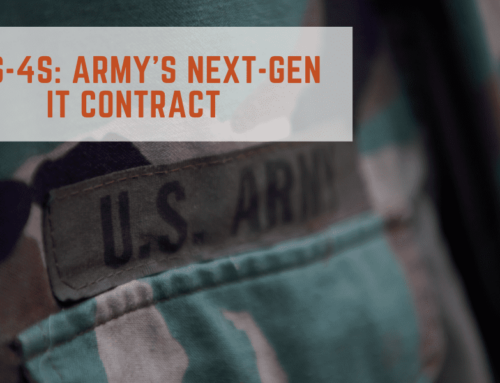Last May, DHS cancelled its planned Flexible Agile Support for the Homeland (FLASH) procurement when this $1.5 Billion Small Business (SB) Set Aside IDIQ bid ran into evaluation and then protest turbulence. Soon thereafter, DHS announced it was planning to issue a FLASH 2.0 RFP, which is now expected in April.
Failure to Launch – The Fate of FLASH 1.0
What happened to 1.0 was this: As an experiment, DHS had turned to its Procurement Innovation Lab (PIL) to handle the initial FLASH bid. PIL required written proposals and three-minute initial video submissions. Bidders were also required to demonstrate their technology, live, in four-hour sessions. 111 companies entered the fray; 11 won. 10 bidders contested the awards with 35 separate protests alleging numerous evaluation errors. Six months later DHS canceled FLASH. Then, the Government Accountability Office (GAO) dismissed all protests.
FLASH bidders had gone to extraordinary lengths — and had spent big bucks — to show off their serious Agile software development chops. Dismayed and disappointed, they pushed back.
Not a FLASH in the Pan, Not by Any Means!
Following an informal powwow, eight of the awardees– Navitas Business Consulting, Ad Hoc LLC, Innovations JV, LLC, SemanticBits, STSI, LinkTec LLC, Karsun Solutions and SimonComputing, Inc. – sent a letter praising DHS for its attempt to be more innovative, and urging it to “push forward” with FLASH, despite the initial issues.
And pushing forward is exactly what DHS is doing. Industry participants expect DHS to apply lessons learned from the FLASH 1.0 bid experience the next iteration of the RFP. Odds are, it’ll be at least a bit more conventional that its predecessor. At least that’s what industry participants expect.
How to Win FLASH 2.0
What DHS’s FLASH 2.0 RFP will require exactly is conjecture at this point.
What’s clear is this:
Bidders on Agile Software Development contracts all claim experience with this innovative approach requiring the breaking of tasks into small, iterative, one-to-four-week time box increments with minimal medium-, or long-term planning.
What separates the winners of USG Software Development contracts such as FLASH from the also rans is the winners’ ability to show their grasp of the following Agile principles, including:
Team Strength, and Complementarity — Agile project teams are cross-functional and self-organizing. Corporate hierarchies or team members’ corporate roles are of little importance. Team members take responsibility for tasks that deliver functionality on an iteration by iteration basis. Finding the right skill balance and mix of team participant capabilities is crucial. Together as a unit they must handle properly all iterative process functions: planning, requirements analysis, design, coding, unit testing, and acceptance testing — and then demonstrate successful results to stakeholders, every step along the way.
Communication — The need for communication and collaboration among all team members as well as all stakeholders, is continuous – a must have.
Risk Minimization, Management Flexibility, and Process/Project Adaptability – Essentials, every single one.
Functionality Awareness – Agile processes must move demonstrably closer to market release and bug minimization at every iteration.
Customer Involvement – A customer representative must be present at every step of the way to keep the team members and the process on track.
As Agile expert Greg Godbout, one-time Chief Technical Officer (CTO) and Digital Services Lead at the Environmental Protection Agency (EPA) and before that — IT expert for GSA and GAO (see links below), says “Agile is about totally rewiring Government.”
Successful bidders on Agile programs must show they grasp the enormity of this challenge, and are up to surmounting it.
(Information from the Federal Government’s Agile Handbook and related Digital Services material can be found on the https://18f.gsa.gov and www.agilegovleaders.org/handbook websites.)






Leave A Comment